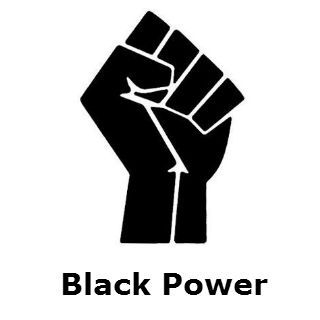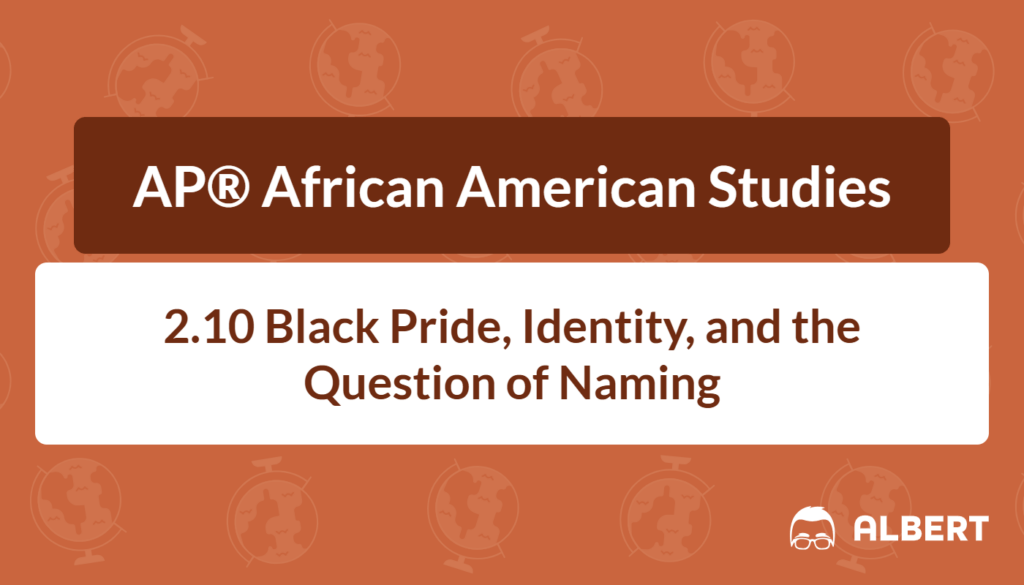What We Review
Black Pride, Identity, and the Question of Naming
The story of African American identity is deeply tied to the names and labels that people of African descent have used over time. These shifting terms reflect changes in society, politics, and the ways that Black communities see themselves, contributing to the evolution of Black pride. Examining these developments helps provide a clearer understanding of how African Americans have asserted their identity across different periods.
Below is an exploration of the impact of naming on Black pride and identity. This post also highlights essential historical moments and mentions a key primary source collection, “Selections of Letters Written to Newspapers from Call and Response, 1831–1841,” to show how ideas about naming and identity developed during the nineteenth century and beyond.
Introduction
Identity is important in any community. For African Americans, it has taken on special meaning due to a long history marked by slavery, discrimination, and the fight for equality. Names play a critical role in establishing how a group is seen by others and how they see themselves. Therefore, understanding the historical context of these names is essential.
Throughout American history, many different terms have emerged to describe people of African descent. Each term reflects a particular time period, cultural movement, or response to social changes. Today, it is helpful to see how these terms have evolved. By exploring their origins, it becomes easier to appreciate current debates on identity and the significance of naming.
Historical Context of African American Identity
Pre-1800s: Early Terminology
Before the 1800s, identities among people of African descent in America were shaped mainly by forces outside their control. European colonists identified enslaved Africans simply by race or region of origin. Yet, within Black communities, cultural and linguistic links to Africa remained strong. The term “African” was common, signaling solidarity with ancestral roots.
Impact of the International Slave Trade
However, as the international slave trade continued, these cultural ties were disrupted. Enslaved Africans came from different regions of the continent, each with unique traditions and languages. People had to adapt to a new land and form new bonds with one another. This fusion of diverse African cultures contributed to the early development of a distinctive African American identity.
Example: Changing Demographics Post-1808
In 1808, the United States officially banned the international slave trade. According to EK 2.10.A.1, the percentage of African-born people in the African American population dropped significantly. Nonetheless, the smuggling of enslaved people from Africa did not entirely cease. Even so, many Black individuals in the United States began viewing themselves as Americans because most were now born in the country rather than in Africa. This change led to more emphasis on creating a shared identity that carefully balanced African heritage with American realities.
The Role of the American Colonization Society
Background on the American Colonization Society
The American Colonization Society (ACS) was founded in the early nineteenth century, during a time when free Black populations were growing in places across the United States. As EK 2.10.A.2 notes, the stated goal of the ACS was to send free Black people to Africa, in part to remove them from the American landscape. Many white leaders believed a growing free Black community posed social and political challenges.
The Society’s Impact on Self-Identification
Supporters of the ACS argued that Black individuals would be better off in Africa rather than in a society that continued to deny them equality. However, many Black people disagreed. They saw themselves as Americans by birth and cultural ties. Some rejected the label “African” because it seemed to separate them from their home in the United States.
Example: The Reaction of the Black Community
The very idea of moving to Africa led many African Americans to question the term “African,” which had been widely used as a self-identifier until the late 1820s. Opposition to the ACS caused many individuals to assert that they belonged in America. This stance strengthened a sense of national identity within the Black community and paved the way for new ethnonyms that emphasized American citizenship.
Evolution of Ethnonyms in the African American Community
What Are Ethnonyms?
Ethnonyms are names used to identify ethnic or racial groups. These terms can shift in meaning depending on social and political factors, as well as community preferences. For African Americans, changes in ethnonyms over time show how perceptions of identity evolved.
A Timeline of Key Terms
- “African” – Used widely before the 1820s, reflecting roots in the African continent.
- “Afro-American” – Grew in popularity during the nineteenth century, combining African heritage with an American identity.
- “African American” – Gained recognition over the years, especially in the twentieth century, signaling deep historical ties to both African ancestry and American nationality.
- “Black” – Became prominent during the Black Power movement of the 1960s and 1970s as a term of pride and empowerment.
These shifts are also highlighted by EK 2.10.A.3. They reveal that names do not remain static. Society, politics, and the varied experiences of people influence how communities choose to be identified.

Example: The Transition from “African” to “Black”
In the early to mid-nineteenth century, many people used the word “African” to describe individuals of African descent. Yet, as time passed, terms like “Black” increasingly recognized the shared experiences of slavery, discrimination, and cultural creation on American soil. By embracing the term “Black,” groups stressed solidarity and pride in their culture, rather than focusing solely on ancestral lineage.
The Influence of Demographics and Cultural Changes on Naming
Changing Demographics and Their Impact
Once the United States banned international slave trading, more people were born into slavery on American soil. This shifted how they viewed themselves. No longer being recent arrivals, many individuals saw the American environment as their primary home. The name changes reflected this mindset.
Popular Debates That Shaped Terminology
During the nineteenth century, several popular debates addressed the meaning of being both African and American. Newspapers, community meetings, and political gatherings offered spaces for people to speak openly about identity.
- Discussion of the pros and cons of accepting or rejecting the label “African.”
- Arguments surrounding whether free Black people should return to Africa or stay in the United States.
- Ongoing concerns over how to claim citizenship in a nation that permitted slavery.
Example: Effects of Cultural Movements from the Nineteenth Century Onward
Movements to abolish slavery, demand civil rights, and promote self-determination all left their mark. Thus, naming shifted in step with social reforms. When abolitionists called attention to injustice, more African Americans embraced the idea of self-definition, choosing labels that supported unity, pride, and belonging in America.
Modern Implications of Naming and Identity
Today, the words “Black,” “African American,” and other related terms are common and carry different layers of meaning. Everything from music to activism has influenced how these communities define themselves. The Black pride movement championed empowerment and sought to reclaim terms once used as insults. Therefore, discussions about identity remain central in modern politics, social activism, and academic conversation.
Naming continues to shape personal and collective identity. Many students today benefit from learning about these historical shifts, because it fosters empathy and understanding. Reflecting on how terms like “African American” emerged helps people see how past events inform present discussions about racial equality.
Required Source: Selections of Letters Written to Newspapers from Call and Response, 1831–1841
This primary source collection includes letters that offer insight into how nineteenth-century African Americans communicated about identity, freedom, and self-determination. The letters show real people expressing opinions about events like the American Colonization Society’s efforts and the development of new identity labels.
- Historical Context: These letters were written in a period of intense debate over African American rights.
- Relevance: They capture changing viewpoints about nationality, faith, and the place of formerly enslaved individuals in the United States.
- Impact: The letters influenced newspaper readers, shaping public opinion and fueling discussions that laid the groundwork for later movements such as abolitionism and civil rights advocacy.
Connecting this source to the assessed topic reinforces how identity is shaped by direct responses to social challenges. By reading firsthand accounts, students can observe the depth of these debates and see how they shaped the community’s naming practices.
Vocabulary Reference Chart
Below is a quick reference chart of important terms and definitions related to this topic. Feel free to copy and paste this table into a personal study guide:
| Term | Definition |
| African American | A term often used to describe individuals of African descent who are citizens or residents of the United States, highlighting both heritage and nationality. |
| Afro-American | An older term combining African heritage with a clear emphasis on American identity, used especially in the late nineteenth and early twentieth centuries. |
| American Colonization Society (ACS) | An organization founded in the early 1800s with the aim of sending free Black people to Africa, under the belief that this would resolve social conflicts in the U.S. |
| Demographics | Statistical data about the population, including birth rates, migration patterns, and ethnic composition. |
| Ethnonym | A name or label for an ethnic group, illustrating how societies classify and identify groups of people. |
| Identity | The qualities, beliefs, and expressions that define a person or a group, often shaped by historical and cultural factors. |
| Slave Trade Ban of 1808 | U.S. legislation that prohibited importing enslaved Africans, leading to a change in the composition of the African American population. |
Conclusion
The journey of naming in the African American community reflects a history of struggle, adaptation, and determination to claim space in the broader American narrative. From “African” to “Black” and beyond, each label carries a story about how demographics shifted, how communities strove for recognition, and how pride emerged amid oppression. These developments continue to shape conversations about identity, social justice, and the power of collective naming today.
Students are encouraged to think critically about their own identities and the words used in everyday life. Investigating historical sources, such as letters from “Call and Response,” offers an authentic view of how communities define themselves. By understanding these historical contexts, young people can actively participate in meaningful discussions on race, identity, and civil rights, thus shaping a more inclusive future for all.
Sharpen Your Skills for AP® African American Studies
Are you preparing for the AP® African American Studies test? We’ve got you covered! Try our review articles designed to help you confidently tackle real-world AP® African American Studies problems. You’ll find everything you need to succeed, from quick tips to detailed strategies. Start exploring now!
Need help preparing for your AP® African American Studies exam?
Albert has hundreds of AP® African American Studies practice questions, free response, and full-length practice tests to try out.









